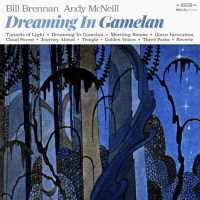
|
-
The album title gives it away, but from the outset it's clear that the sound world we are entering into on this new release from Canadians Bill Brennan and Andy McNeill has a strong relationship with Indonesian gamelan. In particular the music relates to the Sundanese form of gamelan from West Java, but its references stretch well beyond that. The opening track, “Tunnels of Light,” begins with a rapidly repeated single note on a metallophone, followed up by what sounds like a form of gong, albeit treated electronically, with a melodic pattern played on a type of bonang. All pretty much characteristically gamelan, yet it soon becomes evident that rhythmically and texturally there is also something different and more occidental going on. But this is no half-hearted attempt at blending genres: everything here gels musically, as it does on each track. Traditional gamelan instruments are at the heart of the proceedings but western instruments also play a part, with occasional electric violin from Hugo Marsh and some piano from Brennan... While gamelan is clearly at the heart of the concept for this album, it is the way it goes beyond that which is so interesting. Dreaming In Gamelan never feels like a forced marriage between east and west, traditional and contemporary.
Read Mike Adcock's full review and hear some of the music.
|
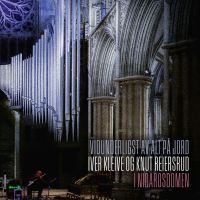
|
-
If your perception of church organ is mainly as an accompaniment to Sunday hymn-singing, this album by Norwegians Iver Kleive and Knut Reiersrud combining electric guitar or oud with its mighty sounds on Vidunderligst av alt på jord could be a revelation.
Knut Reiersrud’s work and many collaborations have ranged widely across blues and the folk music of Norway, Africa and beyond, and organist Iver Kleive has been a long-time musical partner in some of them, including in the mighty theme of the 1994 Lillehammer Winter Olympics. Their earlier duo albums were recorded in Danish churches with a suitable combination of organ and acoustics, but this time they are in an even more appropriate place, the 800-year-old Nidarosdomen Cathedral in Norway’s Trondheim, built over the grave of Olav Haraldsson - Olav the Holy, who died in 1030. Andrew Cronshaw shares his thoughts on, as the artists call it, 'the most wonderful thing in the world.'
Read Andrew Cronshaw's review and hear some of the music.
|
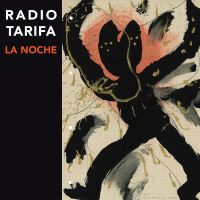
|
-
In 1993, Radio Tarifa created a huge stir with their stunning debut album, Rumba Argelina. Evolving from an early music group in Spain, they cast their net wider, becoming an imaginary radio station where flamenco played alongside Andalusian music, Arabic – and early music. That blending seems normal now, but over 30 years ago it was quite revolutionary. Originally the brainchild of multi-instrumentalists Fain Sanchez Dueñas and Vincent Molino, it really hit lift-off when combined with the glorious raw vocals of Benjamin Escoriza. The album was a global success and pushed them on to a broader stage, where they remained until the band broke up in 2006. Six years later, Escoriza's death seemed to be the end of any new music. La Noche finds Molino and Dueñas working together with a wide range of vocalists – including a big surprise – a recording of Escoriza himself on the opening title cut. Chris Nickson reviews their return.
|
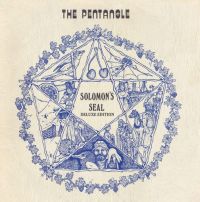
|
-
There's an unfortunate irony to the fact that Solomon's Seal, The Pentangle's first album for a major label, was also their swansong. They'd moved from Transatlantic up to Warner, a big climb up the ladder, but one that their popularity deserved. This two-CD set helps place it in the broader context of where the band sat at that pivotal time... They eloquently straddled the line between folk and jazz thanks to the all the instrumentalists, who show their easy swing and fluency. In Jacqui McShee they possessed a singer with a glowing, crystalline voice that hovers majestically over the disc.
Chris Nickson explores the pros and cons of this new "deluxe" reissue of a classic album.
|

|
-
Ilmateade is the second album from Estonia's Duo Ruut, Ann-Lisett Rebane and Katariina Kivi, who have been singing together for eight years, since they were in their teens. In essence their music is characterized by the two of them harmonising vocally while accompanying themselves on a meter-long 42-string Estonian zither known as a kannel, closely related to the Finnish kantele. Facing each other across the instrument, they produce a rich mix of sounds from what is a relatively basic instrument, by using different playing techniques: plucking, strumming and hammering the strings along with some electronic processing here and there. They have already been enjoying a degree of success, particularly in Europe, and listening to Ilmateade, it's not hard to understand why they're getting such a good reception. Read Mike Adcock's review.
|

|
-
Seydou Diabaté had little choice but to follow his family's griot tradition in Burkina Faso and become a solo balafon player. Failing to attend school, the instrument became the focus of his learning, first through his father, then after he died when the boy was only ten years old, under the guidance of his uncle. Diabaté began playing with local bands and singers in the city of Bobo-Dioullasso before moving to France in the early 2010s and, going under the name of Kanazoé, formed his own band, the Kanazoé Orkestra. Balabeatz is their fourth album and the music on it has a distinctly contemporary feel, but deeply rooted in Burkinabé and Mandinka heritage.
Mike Adcock reviews.
|

|
-
There is a beautiful anarchic freedom to The New Eve Is Rising, the debut from the all-female quartet The New Eves. Part modern punk meets modern hippie, with plenty of wild energy and abandon, everything done with absolute intensity and commitment. There's plenty to admire here.The opener, "The New Eve," is as much a spoken manifesto as anything, a piece that seems as if it might start to consume itself in its fiery energy. They carry on, offering a brilliant, provocative feminine wyrdness that manages to range around the centuries without effort, and offer provocative, singular music.
Read Chris Nickson's review and listen in.
|
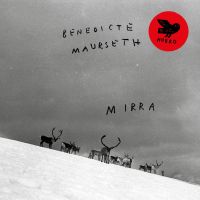
|
-
To call Benedicte Maurseth a Hardanger fiddle-player is an accurate but insufficient way to summarise her musical activities and her output confirms that. Mirra reflects how centrally important the natural world is for her and for what she does musically. It begins with the sound of reindeer (a mixture of grunts and tinkling bells) and it's not until about a minute in that we can start to pick out out the distinctive tone of a Hardanger fiddle. Even then it remains almost submerged in a wash of other sounds, natural and electronically processed. The title track, "Mirra," is named for a local dialect word referring to the way reindeer gather together for warmth and protection.
Read Mike Adcock's full review and listen.
|

|
-
A new generation of Irish musicians are enjoying a well-earned moment. Groups like Lankum and Landless have expanded the palette, transforming it into something fresh and decidedly modern, strongly rooted in the tradition without ever being bound by it. They explore the possibilities, and Poor Creature find their own niche in the sonic maelstrom of All Smiles Tonight, with one member from Landless and one from Lankum, plus Lankum's touring drummer and very occasional guests, sparingly employed. Coming together as a very loose unit during lockdown, they haven't rushed into recording, instead taking the time to develop a sound that's distinctly theirs but which fits within the spectrum of this new Irish music. Read Chris Nickson's review
|

|
-
New sound bites in August include music from the octogenarian Hilda Tloubatla once again leading The Mahotella Queens in a throwback to the Soweto sound of the 1970s.
Also on the list is a memorial to the great accordionist Flaco Jimenez, in a duet with Max Baca, a bonus tune from The New Eves, who we just reviewed, some new music from Malawi's Madalitso Band, and a tune from the trio Tako Toki, who are releasing some 'summer singles.' Tune in!
|

|
-
"Currently, we are managing to survive by producing only things we believe in and working hard to achieve our goals. We want to continue to focus on internationalization because it is a cornerstone of our vision. Another goal is to expand the team so that we have time to develop all the creative ideas we have in mind... Our most important goal is to continue to produce music that aims to be enduring."
Zero Nove Nove (099) is the telephone prefix for Taranto, a coastal city in the Puglia region of southern Italy. It is also the name of a boutique music firm founded in 2017 by Giuseppe Bortone, a native of Taranto and a former freelance tour manager and booking agent.
Based in Lecce, the center of the Salento music scene, Zero Nove Nove began as a management and booking company and continues to offer these services. In 2022, Bortone branched out into recording and publishing with the release of Maresia by the Pugliese composer, singer, and multi-instrumentalist Fabrizio Piepoli. With its mix of styles—southern Italian, Arbëresh (Italo-Albanian), and Portuguese fado. It was an early indication of the Zero Nove Nove aesthetic.
Giuseppe Bortone talks to RootsWorld's George De Stefano about his still developing music label, Zero Nove Nove
|
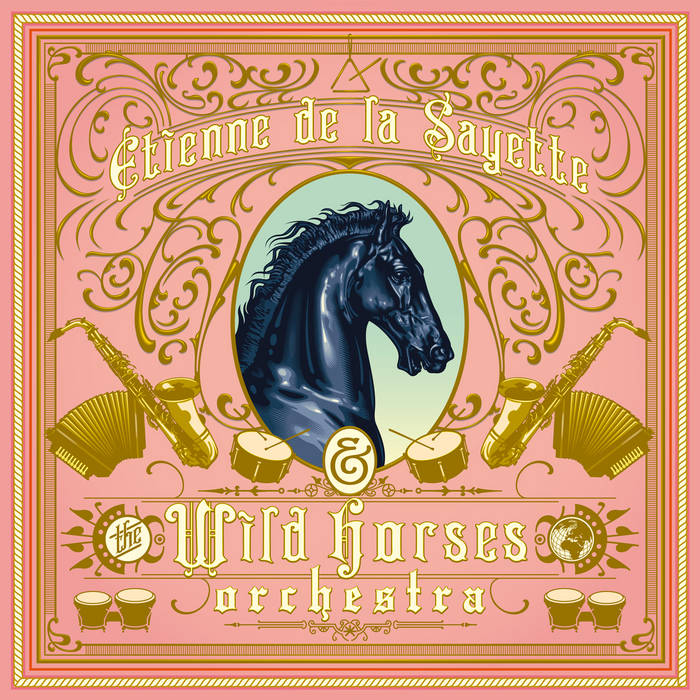
|
-
Around the world, in home studios or repurposed spare rooms, there are people hunched alone over computer screens showing rows of wave-form sausage-strings, compiling sounds to make their music. For many, their sound sources are samples. But some are surrounded by an interesting clutter of diverse instruments, and Parisian Etienne de la Sayette is a prime example. The instruments he plays and layers for this album include a small harmonium, balafon, kalimba, ethnic flutes, saxes, clarinet, piano, guitar, double bass and percussion.
As well as the diversity of his instruments and his skill on them, what sets de la Sayette apart from others is the quality and range of his compositions, which all have memorable, structured tunes, reflecting his wide knowledge of styles. The Wild Horses Orchestra is a fictional ensemble, and this is essentially a completely solo, personal project...
Read Andrew Cronshaw's review and enjoy some of this unusual music.
|
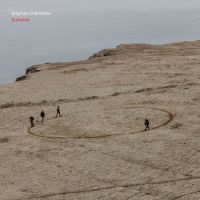
|
-
The small pipes might not sound like a promising instrument for crossing the porous boundaries between traditional Scots music and avant-garde minimalism and experimentation, but Brìghde Chaimbeul's firm vision melds them all together and transforms them into art. A heady claim, perhaps, but one she proves over and over on Sunwise. After performing alone on stages across the globe, she understands ways to use her instrument and embrace its natural minimalism, with experience and confidence.
Read Chris Nickson's review and hear some of the music.
|
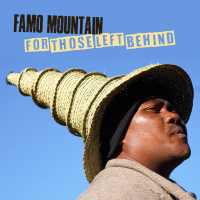
|
-
Famo Mountain's For Those Left Behind was recorded in the Lesotho highlands. Lesotho, a rugged, often cold country entirely surrounded by South Africa, not surprisingly shares some sonic connections to its only neighbor. In fact, South Africa's concertina-aka squashbox- traditions have been well documented on a number of releases, so it's not surprising that some form of the instrument would also exist in Lesotho. The group features the accordion along several drummers and singers, but also makes room for the thomo, a one-stringed gourd instrument that is undoubtedly the predecessor of the Brazilian berimbau.
The reason for this recording dates to news reports of violence among gangs who see the accordion-based spontaneous rap as a weapon... Much like Chicago Drill's connection to gang violence in a city whose increasing unaffordability due to gentrification has continued to segregate groups along racial and economic lines, the Famo Wars have pitted musicians into warring camps. So, a country of 2 million with some of the most breathtaking landscape on the planet finds distinct, often opposing groups using music based on an instrument German colonizers introduced to the region over a century ago to speak about injustice. And the song titles here reflect this. Read Bruce Miller's full review and listen to some tracks in RootsWorld.
|
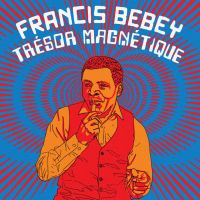
|
-
Though Camerounian musical innovator, writer, and musicologist Francis Bebey passed some 24 years ago, a variety of recent reissues are not only keeping his name very much in the present, they also show how radically innovative he was. Playful, irreverent, and often downright strange, he made music that defied trends. He created experiments for sanza, pitted traditional instruments against drum machines and other electronics, and often sang or spoke in the dueling languages of the country's former colonizers, the French and the British, sometimes in the same track. A new collection, Trésor Magnétique, continues to show how far outside of any existing sub-Saharan African styles Bebey worked.
Read Bruce Miller's review and listen to some of his music.
|

|
-
Giorgios Zacharioudakis's opening of the first track of Rizituals, "Ilie mou," on the Indian flute bansuri, accompanied by cello, has a rich soaring breathiness that evokes Bulgarian kaval, as indeed does the modality of the melody. But this, like all the material on this album by Greek singer Xanthoula Dakovanou, is a song from Crete. Nearly all are from the western part of the island, from the tradition known as rizitika, in which the songs are sung in acapella unison by a male vocal group. But Dakovanou, who is originally from Athens and lived for several years in western Crete, wanted to bring a different approach to the material, to have them sung by a woman, in fact two women; she's joined by another very fine singer, Cretan Eugenia Toli-Damavoliti. All the songs she's chosen are about women and their various roles in what is an historically patriarchal society. And whereas the traditional way for rizitika is unaccompanied, there's a team of top-class players of traditional and other wind, string and percussion instruments. Read Andrew Cronshaw's review and hear some of the music.
Read Andrew Cronshaw's review and hear some of the music.
|

|
-
Coming a year after Zosha Warpeha's debut release, Orbweaver is a duet recording with Mariel Terán, who plays a variety of Andean flutes and percussion. While there is a distinct musical idea contained within each track here, there is a greater degree of free improvisation than there was on Silver Dawn with a sense of an exploratory conversation going on between the two musicians to which we are being invited to eavesdrop.
The improvised dialogue heard on Orbweaver doesn't follow the model of improvisation found in most jazz, blues and certainly a good deal of roots music. These pieces are not variations on an established melody to be returned to, but investigative journeys.
Read Mike Adcock's review and hear some of the music.
|
|
All pages at RootsWorld are © 1992–2025 RootsWorld / Cliff Furnald / FNI Multimedia Publishing, New Haven CT
The RootsWorld name is protected by US trademark law.
All picture and sound images are the property of the artists and record labels...
About the use of sound files and copyright protections at RootsWorld
|

